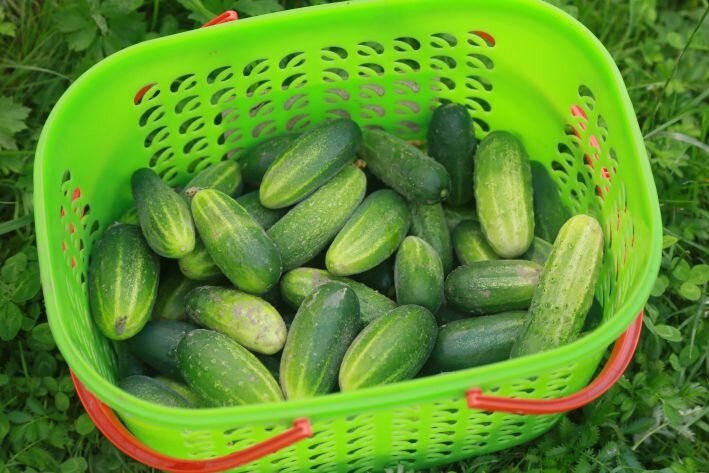- Benefits of nettle for cucumbers
- Methods of preparing nettle fertilizer
- When to feed cucumbers with nettles
- Rules for the use of nettle fertilizer
- Combination with other fertilizers
- The influence of nettles on cucumber yield
- Additional Benefits of Using Nettle
- Limitations in the use of nettle fertilizer
Can cucumbers be fed with nettles: expert gardeners reveal the secrets of green fertilizer
Cucumbers are one of the most common crops in garden plots. To obtain a rich harvest, these plants need regular fertilizing.
Many experienced gardeners use not only mineral fertilizers for this purpose, but also natural remedies, among which nettle occupies a special place.
Benefits of nettle for cucumbers
Nettle is a real treasure trove of nutrients necessary for the growth and development of cucumbers. It contains nitrogen, potassium, calcium, magnesium, iron and other microelements.
Using nettle as a fertilizer not only provides plants with the necessary substances, but also helps improve the structure of the soil.
Methods of preparing nettle fertilizer
There are several ways to prepare nettle fertilizer for cucumbers. The most popular method is an infusion.

To prepare it, you need to fill a container one-third full with fresh nettles, add water and leave to ferment for 7-10 days.
The finished infusion is diluted with water in a ratio of 1:10 and used for watering.
Another way is to prepare grass mulch. Freshly cut nettles are spread around the cucumbers in a layer of 2-3 cm.
This mulch not only fertilizes the soil, but also helps retain moisture and prevents weed growth.
When to feed cucumbers with nettles
It is recommended to start feeding cucumbers with nettles after the third true leaf appears.
In the future, fertilizer can be applied every 10-14 days until fruiting begins. During the period of active fruiting, the frequency of fertilizing can be increased to once a week.
Rules for the use of nettle fertilizer
When using nettle infusion, it is important to follow several rules.
Firstly, do not allow the solution to come into contact with the cucumber leaves, as this may cause burns.
Secondly, do not exceed the recommended fertilizer concentration. Excess nitrogen can lead to excessive growth of green mass at the expense of fruiting.
Combination with other fertilizers
Nettle fertilizer combines well with other types of organic fertilizers.
For example, you can alternate watering with nettle infusion with watering with mullein or bird droppings infusion. This combination allows you to provide plants with a full range of necessary nutrients.
The influence of nettles on cucumber yield
Regular use of nettle fertilizers helps to increase the yield of cucumbers.
Plants become stronger, more resistant to diseases and pests. Fruits form faster and have a richer taste.
Additional Benefits of Using Nettle
In addition to fertilizing, nettle can be used to protect cucumbers from pests. Nettle infusion has insecticidal properties and helps repel aphids, spider mites and other insect pests.
Limitations in the use of nettle fertilizer
Despite all the benefits, nettle fertilizer also has its limitations.
It is not recommended to use it on soils with high nitrogen content, as well as when growing cucumbers in greenhouses, where there is a risk of developing fungal diseases due to high humidity.
Feeding cucumbers with nettles is an effective and environmentally friendly way to increase yields without using chemical fertilizers.
Correct use of this natural remedy will help grow healthy and tasty cucumbers, delighting the gardener with an abundant harvest.
